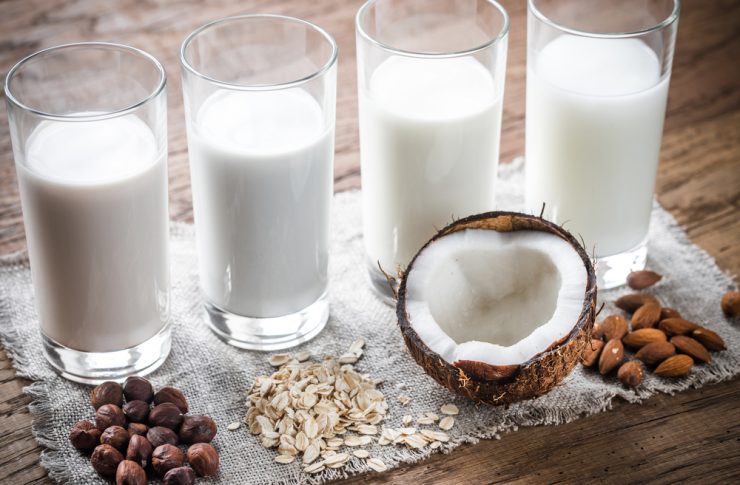“I’m a 45-year old woman and finding dairy foods difficult to digest, especially milk. I seem to suffer from lots of bloating and flatulence, especially after my breakfast, which is generally oat-based with milk. I am thinking of switching to a milk alternative but am not sure which to choose. Can you advise?”
Clinical Nutritionist Suzie Sawyer answers:
This is an often-asked question because there are so many available choices. Some people have a problem digesting the natural sugar content of milk, lactose. If this is the case you can buy lactose-free milk. However, it’s usually the casein (protein) in dairy milk that causes digestive issues, so dairy is best avoided totally for a month to see if you notice any improvement.
I would also avoid oat or rice milks, unless you have issues with nuts or soya, because they are the least nutrient-dense milks and contain more sugar. Both oat and rice milks, however, are very useful for people with allergies.
Coconut milk
Coconut products have become popular over the last few years. Coconut oil contains medium chain triglycerides which the body can use as an energy source, therefore less is likely to be stored as fat. While coconut milk contains minimal protein, it’s generally fortified with calcium as well as vitamins D and B12 (albeit at low levels).
Almond and Hazelnut Milks
Almond milk fares slightly better on the protein front. It also contains some essential omega-3 fats, which are needed for a healthy heart, brain, joints and the skin and eyes. This is also the case with hazelnut milk.
Soya Milk
Top of the class for protein content is soya milk. Soya is one of the main food sources of protein for vegetarians and vegans. This type of milk contains around 3g of protein per 100 ml, and is fortified with vitamins D, B2 and B12. It also naturally contains a small amount of iodine, a mineral commonly deficient in women as well as calcium, with which it is also fortified. This means the calcium content is not much less than skimmed milk.
The only point to be aware of with soya is that some people find it hard to digest. It is always best to try and find the organic variety. My recommendation is to try a few milk alternatives and see which you prefer and if it gives you the health benefits you need.
























Add comment